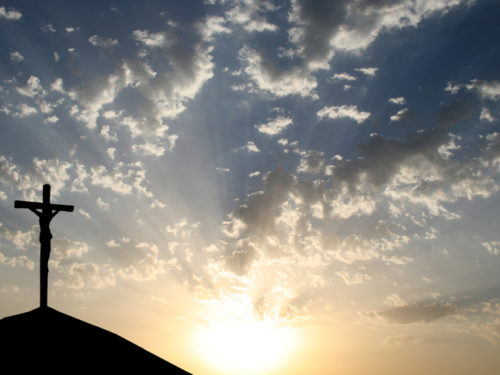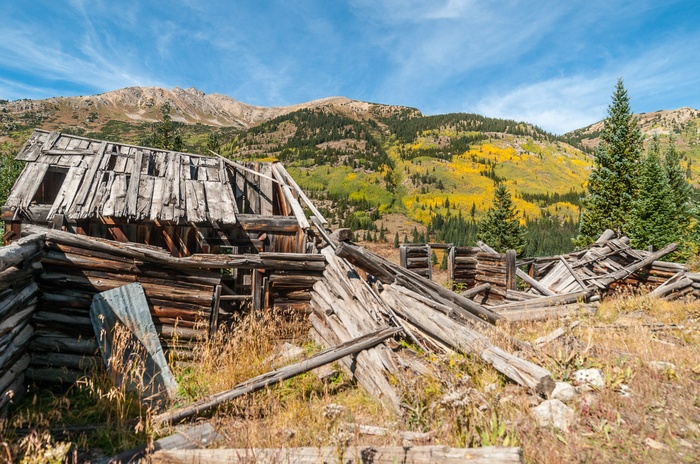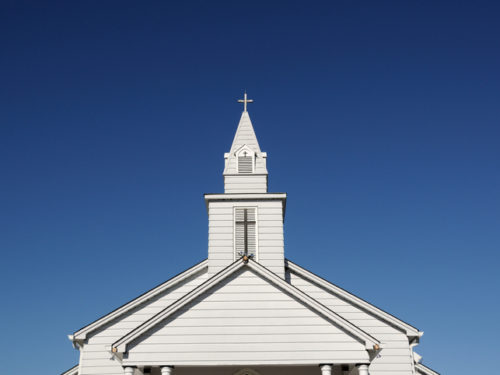 Uncategorized
Uncategorized
In light of the multiple thousands of denominations existing over and against Je...
 Uncategorized
Uncategorized
By: ECO Team
I hope many of you have received an email, or the April ECO newsletter that introduces myself and my task as the part–time Resource Coordinator for our national Theology Task Force. I am very excited to have the honor of serving ECO in this way.
What I have appreciated in my three years in ECO is the can–do attitude. I have felt like ECO is a place where we are asking the question “What can we do for Jesus in our time and place?” rather than “Who is allowed to do this or that?”
I spent the first few years of my life in Cripple Creek, CO, an old mining town that once was a candidate for becoming the capital city of Colorado, so great was its population (10,000) and influence. But, in 1896, half of the city burned down. Four days later, the other half was torched by arsonists. Less than 10 buildings survived. Miners did not build to last. The Wild West was mostly built to be good–enough to fit the purpose of making fast money.
The danger of the can–do attitude is falling into a good–enough attitude. And nowhere is this more dangerous than in the very foundation and structure of a building, city, or church. You may have heard of our ongoing “Considering the Confessions” project that we will be voting on in January at our Synod meeting in Houston. This is a vital project because we do not accept that good–enough is good enough. One of ECO’s core values is “Thoughtful Theology”. Will a robust, well–considered, and even beautiful theology lay at the heart of what unifies us as a movement? Will we apply the can–do attitude to creating a solid and lasting theological foundation?
Now is the time to do this. ECO is preparing to move out of its provisional hut built to be good–enough to make a start, and into a house that we are building right now. This isn’t a once–for–all construction project.

I have been the Transitional Pastor of the United Presbyterian Church in Cañon City, CO for three years. Its congregation first met in 1872 in a small clapboard building, built to be good–enough. It was a church to civilize the rapacious miners. The next building from 1901 still stands, a magnificent quarried limestone and wood cathedral (for its context). This is once–for–all architecture, symbolic of the new money of the captains of industry who moved in and monopolized the Wild West. But the culture and community around it has changed, and it’s now hard to maintain, too expensive, and too imposing for a working–class town. This means it isn’t well used. Without an elevator, much of the congregation can’t access its classrooms. Without able volunteers to work on the building, it’s fallen into disrepair. Perhaps that’s a metaphor for our received Book of Confessions—hard to access, lightly used, and not well maintained. It’s time to change that.
We certainly won’t come up with the exact right combination or formulation of Reformed theology for all time. It wouldn’t be Reformed if it had that much hubris! Scripture alone is our foundation. But what will the theology of the house of ECO look like? How will we build something of great quality for our time?
Some presbyteries have already proposed what they think would be the right expression of our common faith. You can see those overtures and much more information at our new theology website: www.Theology-ECO.org
I hope to write fairly regular blog posts for ECO about “thoughtful theology”. I want to help reunite theology with the church and the church with theology. And I see a lot of potential in ECO for this reunion. But I also see the risk of living in the realm of good–enough.
Kevin Vanhoozer writes in The Pastor as Public Theologian, “Many modern pastors who came to see their vocation as a helping profession lost interest in theology since they were preoccupied with learning practical skills that would ensure success (i.e., results)” (185). This is the danger of settling for good–enough. We demand a practical theology that will get us results. And so we build theological wooden shacks that are just good enough to serve their purposes. But fires have come to Western churches, and each shack we build is burned down. There is no good-enough in theology. Let us strive for excellence in loving God with all our minds.
 Uncategorized
Uncategorized
In light of the multiple thousands of denominations existing over and against Je...
 Uncategorized
Uncategorized
My first pastoral call was to the First Presbyterian Church of Winnfield, a litt...
 Uncategorized
Uncategorized
This semester, I’m teaching “The Holy Spirit and the Church.” Our primary textbo...